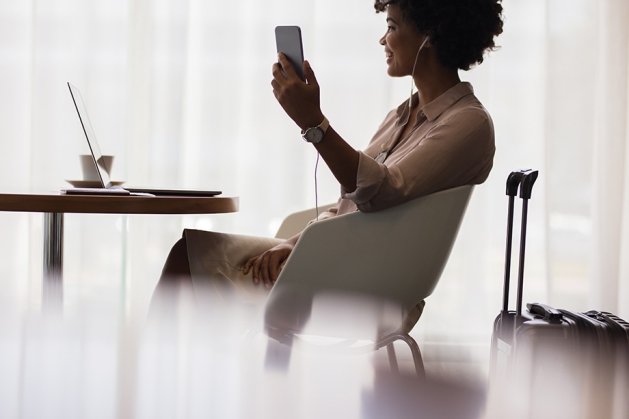
Travelers have been itching—itching to get back out on the road, into the skies or over the seas to locales near and far. While scratching the travel itch can be satisfying, there are some hiccups that are worth avoiding.
When it comes to cyber security, we checked in with Jim Bendt, owner of Pique Travel Design in Excelsior, for some practical tips.
How do travelers ensure that they are on an official airport network?
Public Wi-Fi in places like airports, unfortunately, have become prime hacking spots, and it’s really important to have your guard up. The best protection is to avoid any public Wi-Fi and simply use your hotspot on your phone ... I gladly invest in adding international coverage when I travel abroad because it gives me peace of mind …
If you don’t want to use your personal hotspot, then make sure the Wi-Fi network is legit and not someone posing as a legit source. Hackers might use the name of an airport restaurant or lounge area. Listen to your Spidey senses. If it doesn’t feel right, don’t use it. You should also make sure the network is HTTPS and not HTTP. Think of the extra “S” as extra “security.”
Many web browsers, like [Google] Chrome, [Microsoft] Edge and Safari, have a padlock icon in the address bar when a site is secure. If a website doesn’t have this icon, then you are at risk and should visit that site when you know you are on a secure network.
Don’t use sites where you accessing sensitive information that could do you harm … Keep your browsing to low-risk content viewing.
Be aware that mobile apps typically don’t have anything visible to know if it’s secure, so maybe wait until you are on a secure network to use them.
Should travelers alter their device settings to avoid automatically connecting to nearby networks?
Definitely. And make sure your personal hotspot has a secure password ... and that you need to approve anyone that wants to join. Limit access to people you trust.
Thoughts on connecting to power outlets and USB chargers?
Nowadays, cellphones and laptops typically support the full range of voltages used throughout the world, and many airports, planes, hotels, etc. have outlets that accept many different plug types. If you happen to run into a situation where multipurpose outlets are not available, any hotel or airport convenience store will have local adapters available for you.
Let's talk about letting others borrowing devices.
Much like you wouldn’t let somebody else pack your bags, you shouldn’t let others borrow your devices—unless it’s that waiter or tour guide you ask to take a picture of you while traveling and you see what they are doing with your phone.
How should one guard against travel-related email scams?
My advice is if you get an email to alter travel plans or renew TSA Precheck, don’t click the links in the email. Treat it as a nice reminder, and go to the website directly to log into your account. You know it’s secure, and you’ll get accurate info about whether updates are truly needed or it was a scam.
Are there steps to take to protect financial accounts while traveling?
I make sure that any sensitive information, like banking, is done before I go on the trip. [I let] my bank know I’m traveling or make sure I have enough space on my card to make purchases. The more you can minimize these interactions while traveling, the better you will be protecting your account. If you do need to make changes, calling [your bank] will be your best option.
Over-the-shoulder information stealing is a real issue. Ideas?
If you are working on sensitive information that you are concerned someone might lean in to see, pick your spot carefully. Maybe find a chair or table far away from others, or [sit with] your back to the wall. And if anyone is in your personal space bubble, make eye contact, so they know you are onto them. Once they know they are busted, they will move on.
Pique Travel Design
306 Water St., Excelsior; 612.801.1005
Facebook: Pique Travel Design
Instagram: @piquetravel
Twitter: @PiqueTravel









